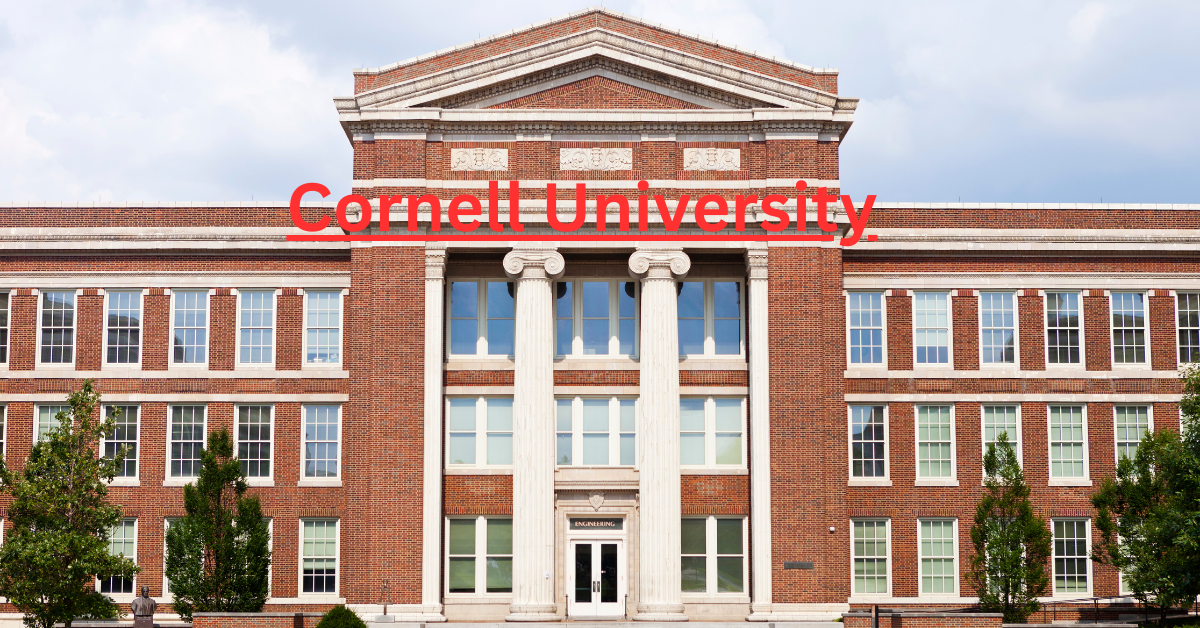Introduction
Established in 1865, Cornell University stands as one of the prestigious Ivy League institutions nestled in the serene landscape of Ithaca, New York. Known for its commitment to academic excellence, research prowess, and inclusive community, Cornell has emerged as a beacon of higher education, shaping the minds of countless scholars and leaders across various fields. This comprehensive guide delves into the rich history, academic offerings, research initiatives, and unique campus culture that define Cornell University.

History of Cornell University
From Humble Beginnings to Academic Eminence
The inception of Cornell University can be traced back to the visionary aspirations of its founders, Ezra Cornell and Andrew Dickson White. Ezra Cornell, a successful businessman and philanthropist, along with Andrew Dickson White, an educator and diplomat, aimed to establish a university where any person could find instruction in any study. Their progressive vision led to the establishment of Cornell University on April 27, 1865, through the Morrill Land-Grant Colleges Act.
Academic Excellence at Cornell University
Exploring Diverse Disciplines
Cornell University offers a plethora of academic programs across various disciplines, catering to the diverse interests and aspirations of its student body. From liberal arts and humanities to engineering, business, and beyond, Cornell provides a comprehensive educational experience that fosters intellectual growth and critical thinking.
Undergraduate Programs
At the undergraduate level, Cornell offers a wide range of majors and minors through its seven undergraduate colleges:
- College of Arts and Sciences
- College of Engineering
- College of Agriculture and Life Sciences
- School of Hotel Administration
- College of Architecture, Art, and Planning
- School of Industrial and Labor Relations
- College of Human Ecology
Each college boasts distinguished faculty members, state-of-the-art facilities, and unique academic opportunities designed to empower students to explore their passions and achieve their academic goals.
Graduate and Professional Programs
In addition to its undergraduate offerings, Cornell University is renowned for its esteemed graduate and professional programs. Whether pursuing a master’s degree, Ph.D., or professional certification, students at Cornell have access to top-tier faculty mentors, cutting-edge research opportunities, and a vibrant academic community that fosters interdisciplinary collaboration and innovation.
Research Initiatives and Innovation
Pushing the Boundaries of Knowledge
Cornell University has long been at the forefront of groundbreaking research and innovation across a myriad of fields. From pioneering advancements in agriculture and life sciences to transformative discoveries in engineering, computer science, and beyond, Cornell’s research endeavors have left an indelible mark on society.
Interdisciplinary Collaboration
One of the hallmarks of research at Cornell is its emphasis on interdisciplinary collaboration. Through initiatives such as the Atkinson Center for a Sustainable Future and the Cornell Tech campus in New York City, researchers from diverse backgrounds come together to tackle complex challenges facing our world, driving innovation and positive change.
Campus Culture and Community
Embracing Diversity and Inclusion
Cornell University prides itself on its vibrant and inclusive campus culture, where students from all walks of life come together to learn, grow, and thrive. With a diverse student body representing a multitude of backgrounds, cultures, and perspectives, Cornell fosters an environment that celebrates individuality and promotes mutual respect and understanding.
Extracurricular Opportunities
Beyond the classroom, Cornell offers a wealth of extracurricular activities and organizations that cater to a wide range of interests and passions. From student-run clubs and organizations to intramural sports leagues and cultural events, there is no shortage of opportunities for students to get involved, make connections, and pursue their passions outside of academia.
Conclusion
In conclusion, Cornell University stands as a beacon of academic excellence, research innovation, and inclusive community. From its humble beginnings to its current status as one of the world’s premier institutions of higher learning, Cornell continues to uphold its founding principles of knowledge, discovery, and service to society. As it embarks on its journey into the future, Cornell remains committed to shaping the minds of tomorrow’s leaders and making a positive impact on the world.
